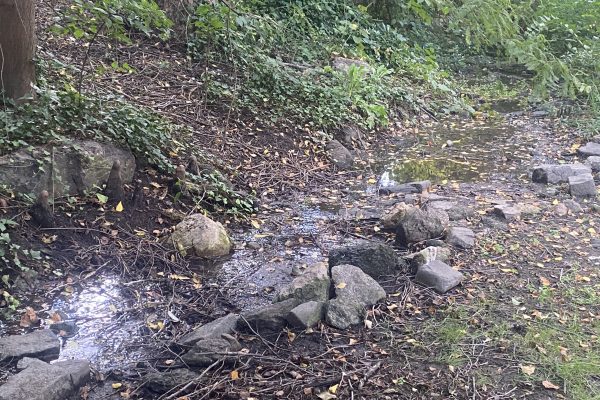This service was written for Tisha B’Av 2018 at Congregation Beth Ahabah in Richmond, VA
[page 1]
In ancient times, we connected to the Divine mainly through sacrifices in the Temple in Jerusalem, which became the focus of religion, politics and national pride for many centuries.
In about 586 BCE the Temple was destroyed by the Babylonian Empire, and many were brought to Babylon as slaves. This led to a great challenge to our very existence; our philosophy, theology and society had to change. When we were permitted to return and rebuild our Temple, we faced the consequences of these changes: a society split between our homeland and new communities in Babylonia.
Centuries later, under the Roman Empire, King Herod expanded the Temple complex to include the Western Wall many of us have seen in pictures or in person. This Temple was violently destroyed by the Romans in 70 CE, after a devastating siege of Jerusalem. Once again, we were thrown into Exile.
According to tradition, both Temples were destroyed on the 9th day of the month of Av. On this day we observe a day of mourning and remembrance for these and numerous other massacres, tragedies and terrible events which we have experienced on that date since then.
[page 2]
A Tisha B’Av Prayer
Grief, loss, devastation, distress,
Shock, numbness, denial, apathy,
Disorganization, confusion, searching, yearning,
Anxiety, panic, fear, resentment, jealousy,
Anger, hate, blame, terror, rage,
Sadness, depression, guilt, regret, isolation.
All these feelings and more, we will experience in our lives.
We often find ways to distract ourselves from the full depth of our emotions.
Today we open the floodgates and sit with those feelings we would rather avoid.
We can make space enough inside us to hold all these different emotions.
Today we take the time to get to know how we react to these feelings, how we redirect them onto others.
When we open up to grief and sit in darkness, we learn to be better human beings, and light the way for others.
Help us open not just to private grief, but to communal grief for our people and the suffering in the world.
May we learn this Tisha B’Av that finding rock bottom can become a foundation for strength and growth. Amen.
[page 3]
[On this page I included translations of the following verses from Eikhah/Lamentations for people to see as I chanted those verses in Hebrew:
Lam. 1:1–2, 2:5–6, 2:13, 2:19, 3:40–41, 3:55–56, 4:5, 4:8–9, 5:15–17, 5:21–22
Lam. 1:1–2, 2:5–6, 2:13, 2:19, 3:40–41, 3:55–56, 4:5, 4:8–9, 5:15–17, 5:21–22
For 5:22 in the English translation I included both possible interpretations, the one which says God rejected us and the one which says God cannot have rejected us.
I recommend using your favorite translation(s) – I like JPS and neohasid.org]
[page 4]
Hashiveinu (Lamentations 5:21)
Turn us, YHVH (Eternal), toward You, and we will turn.
Make our days new again, like long ago.
Make our days new again, like long ago.
Hashivenu (x2) Adonai eilekha, venashuva (x2)
hadeish (x2) yameinu kekedem.
hadeish (x2) yameinu kekedem.
Babylon (Don Mclean, based on Psalm 137)
[lyrics available online]
Eli Tsiyon (author unknown, written in the Middle Ages)
[I included the two verses in Mishkan T’filah, which we own copies of]











